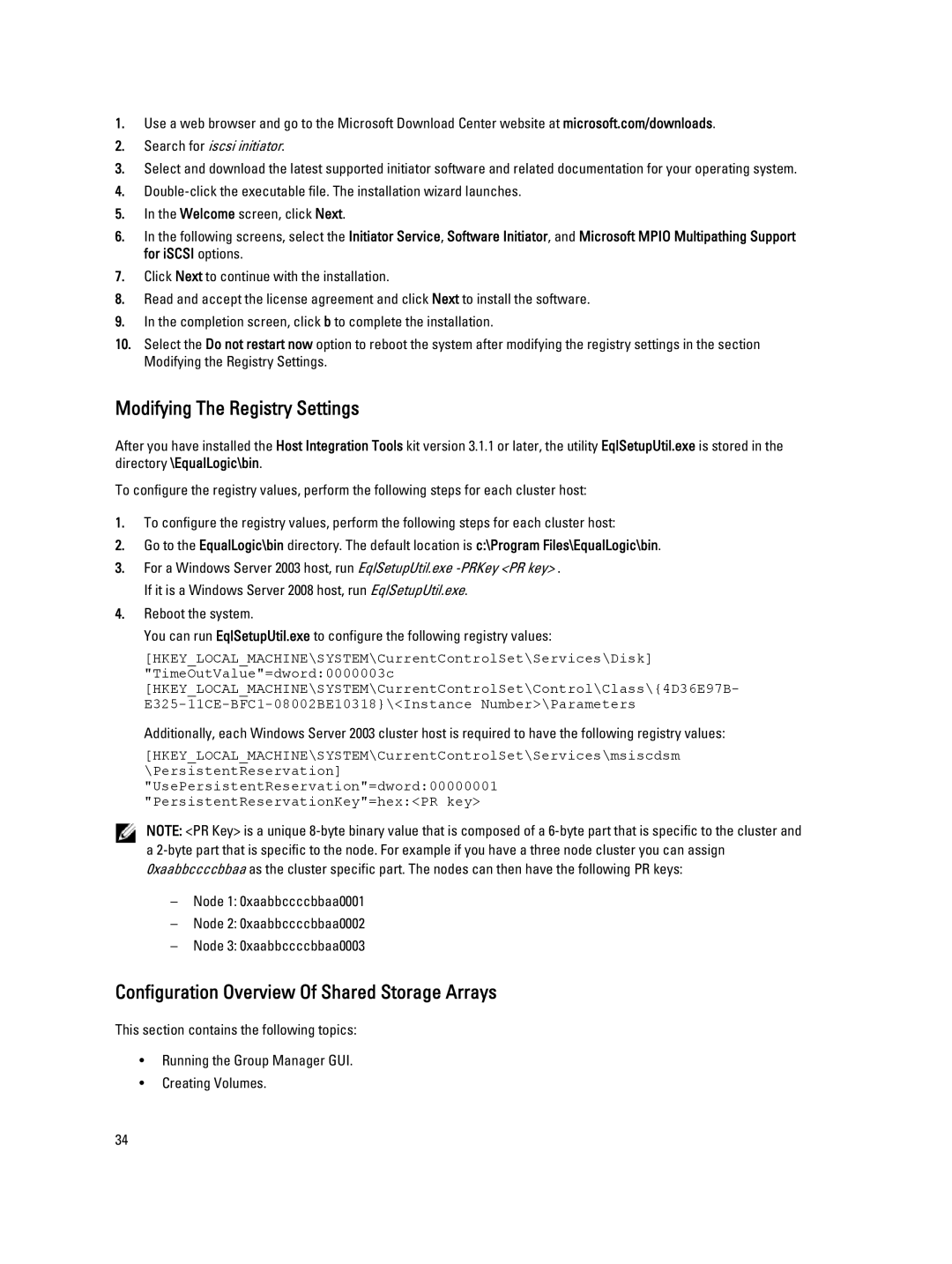1.Use a web browser and go to the Microsoft Download Center website at microsoft.com/downloads.
2.Search for iscsi initiator.
3.Select and download the latest supported initiator software and related documentation for your operating system.
4.
5.In the Welcome screen, click Next.
6.In the following screens, select the Initiator Service, Software Initiator, and Microsoft MPIO Multipathing Support for iSCSI options.
7.Click Next to continue with the installation.
8.Read and accept the license agreement and click Next to install the software.
9.In the completion screen, click b to complete the installation.
10.Select the Do not restart now option to reboot the system after modifying the registry settings in the section Modifying the Registry Settings.
Modifying The Registry Settings
After you have installed the Host Integration Tools kit version 3.1.1 or later, the utility EqlSetupUtil.exe is stored in the directory \EqualLogic\bin.
To configure the registry values, perform the following steps for each cluster host:
1.To configure the registry values, perform the following steps for each cluster host:
2.Go to the EqualLogic\bin directory. The default location is c:\Program Files\EqualLogic\bin.
3.For a Windows Server 2003 host, run EqlSetupUtil.exe
4.Reboot the system.
You can run EqlSetupUtil.exe to configure the following registry values:
[HKEY_LOCAL_MACHINE\SYSTEM\CurrentControlSet\Services\Disk] "TimeOutValue"=dword:0000003c [HKEY_LOCAL_MACHINE\SYSTEM\CurrentControlSet\Control\Class\{4D36E97B-
Additionally, each Windows Server 2003 cluster host is required to have the following registry values:
[HKEY_LOCAL_MACHINE\SYSTEM\CurrentControlSet\Services\msiscdsm \PersistentReservation] "UsePersistentReservation"=dword:00000001 "PersistentReservationKey"=hex:<PR key>
NOTE: <PR Key> is a unique
–Node 1: 0xaabbccccbbaa0001
–Node 2: 0xaabbccccbbaa0002
–Node 3: 0xaabbccccbbaa0003
Configuration Overview Of Shared Storage Arrays
This section contains the following topics:
•Running the Group Manager GUI.
•Creating Volumes.
34
